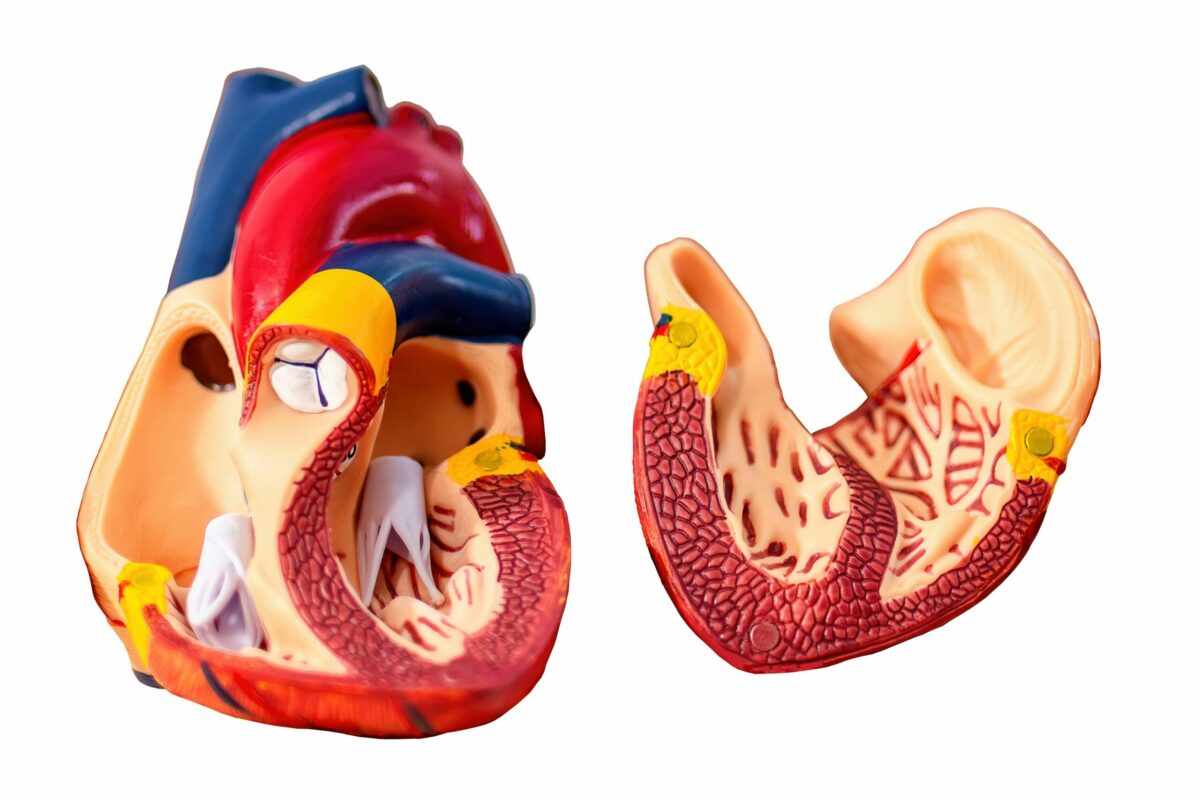A type of heart valve disease that negatively affects the valve between the left chambers of the heart is called mitral valve prolapse. In people with this condition, the leaflets (flaps) of the mitral valve are floppy and they bulge (prolapse) such as a parachute into the left upper chambers of the heart each time the heart contracts (squeezes). In some cases, the mitral valve prolapse may cause the blood to leak backward across the valve. This condition is called mitral valve regurgitation.
Commonly, this condition is not dangerous and does not need immediate treatment or lifestyle changes. However, some people need treatment that usually includes medications or surgery, especially if the prolapse leads to severe regurgitation. Check below other names of mitral valve prolapse:
- Floppy valve syndrome
- Click-murmur syndrome
- Billowing mitral valve syndrome
- Mitral prolapse
- Myxomatous mitral valve disease
- Barlow syndrome
Symptoms
In most cases, people with this condition experience symptoms due to blood that leads backward through the valve. However, the symptoms differ among people such as no symptoms at all or mild ones that appear gradually. Check below some symptoms:
- Extreme tiredness (fatigue)
- Breathing problems or shortness of breath that often occur when lying flat or exercise
- Lightheadedness
- Dizziness
- Arrhythmia (irregular heart rhythm)
If you think you have symptoms of mitral valve prolapse, it is advised to visit a doctor right away. You should do that because there are other conditions that cause similar symptoms to this valve disease type. Those who experience sudden chest pain should go to the nearest emergency room or call 911 immediately because it may indicate myocardial infarction.
Causes
The causes of mitral valve disease can be understood when you know how the heart normally works.
The heart has four valves and one of them is called the mitral valve. These valves maintain blood flow in the correct direction. Each valve has leaflets (flaps) that open and close each time the heart contracts (during heartbeats). Commonly, decreased blood flow in the body occurs when one of these valves does not close or open properly.
When mitral valve prolapse occurs, either one or both leaflets of the mitral valve stretch more than usual or have extra tissue. Thus, the flaps may bulge backward (prolapse) like a parachute in the left upper chamber of the heart each time during heartbeats. Furthermore, bulging may prevent the valve from closing properly leading the blood flow backward through the valve. In such cases, the condition is called mitral valve regurgitation.
Risk Factors
Anyone may develop this condition at any age. However, severe symptoms of this condition happen more frequently in people over 50 years old. In addition, mitral valve prolapse can run in families and be linked with multiple health conditions. These include:
- Scoliosis
- Muscular dystrophy
- Marfan syndrome
- Graves’ disease
- Ehlers-Danlos syndrome
- Ebstein anomaly
What Are The Potential Complications of Mitral Valve Prolapse?
People with this type of valve disease may experience some complications, especially if they do not get treatment. Examples include:
- Mitral valve regurgitation
- Arrhythmia (irregular heart rhythm) – This complication happens usually when the mitral valve prolapse leads to severe regurgitation and upper left heart chamber (atrium) swelling.
Diagnosis
To diagnose this condition doctors often perform a physical examination and listen to the heart using a stethoscope. If after previous procedures, your doctor is not sure whether you have mitral valve prolapse, he/she may perform additional tests to confirm the condition and exclude other diseases that cause similar symptoms. For example:
- Echocardiogram – This test uses sound waves to make images of the heart in motion. A transthoracic echocardiogram (TTE) also called a standard echocardiogram can confirm and determine the severity of the condition.In some cases, physicians may perform a transesophageal echocardiogram (TEE) to get more detailed images of the mitral valve. In such cases, the transducer is attached to the end of the esophagus.
- Chest X-ray – This test can show the heart and lung conditions.
- Electrocardiogram (ECG or EKG) – This is a quick test that measures the heart’s electrical activity. It is painless and helps identify arrhythmias.
- Stress or exercise tests – During these tests, doctors will check your heart while you walking on a treadmill or riding on a stationary bike. It helps determine how your heart responds to physical activity and if you have mitral valve prolapse symptoms.
- Cardiac catheterization – This test is less commonly used to diagnose this type of valve disease but sometimes may be helpful, especially when other tests have not diagnosed the condition.
Treatment
In people with mitral valve prolapse without symptoms, treatment is not needed. However, regular checkups may be recommended by your doctor if you experience mitral valve regurgitation with no symptoms. Medicines and surgery are usually advised for people with severe mitral valve regurgitation. Check below some treatment options usually recommended by doctors:
Medicines
Commonly, doctors prescribe medications that are used to treat arrhythmia and other mitral valve prolapse complications. For example:
- Beta-blockers – These medications help relax blood vessels and slow heartbeat. Thus, it helps reduce blood pressure.
- Diuretics (water pills) – This group of medicines is used to get rid of extra water and salt from the blood.
- Arrhythmia medicines
- Anticoagulants (blood thinners) – If this valve disease causes irregular heartbeats (also called atrial fibrillation) you may need blood thinners that help prevent blood clots. However, blood thinners should be used for the rest of your life if the mitral valve is replaced with a mechanical one.
- Antibiotics – People with a replaced mitral valve may take antibiotics before dental procedures to prevent heart infections (such as infective endocarditis).
Other Treatments
In most cases, people with this valve disease type do not require surgery but it may be used when it causes severe mitral valve regurgitation with symptoms or not. Commonly, surgery for a damaged or diseased mitral valve involves procedures to repair or replace it.
The procedure that repairs or replaces the heart’s valve can be performed by using open-heart surgery or minimally invasive surgery. If minimally invasive surgery is possible, it involves small incisions, less blood loss, and fast recovery.
During the surgery that repair the valve, surgeons will remove extra tissue that prevents it from closing properly and may change the supportive cords of the valve. However, when it is not possible to repair the valve, surgeons will replace it with a mechanical one or a valve produced from cow, pig, or human heart tissue (biological tissue valve).
Home Remedies
The following tips may help keep your heart healthy. Examples include:
- If you have excess weight or obesity and cannot lose weight, consult with your doctor about ways to reduce your weight.
- Regularly perform physical exercise because it may help prevent mitral valve prolapse
- Manage stress and chronic health conditions
- Adopt a heart-healthy diet including fruits, vegetables, low-fat or fat-free dairy products, fish, whole grains, and poultry. Moreover, it is recommended to limit or avoid saturated or trans fat and excess sugar and salt.
- Quit smoking or never begin
Frequently Asked Questions
What is the most common cause of mitral valve prolapse?
In most cases, people experience this condition due to reduced blood flow to the muscles linked with tendon cords. It happens due to coronary artery disease commonly. However, mitral valve prolapse may occur due to other causes including hypertrophic cardiomyopathy, valve infection, heart attack, rheumatic heart disease, and others.
What lifestyle changes may recommend to your doctor if you have a leaky heart valve?
While treatment is not required, your physician may recommend quitting smoking and avoiding caffeine and alcoholic beverages because they make your heart work too hard.
What are the possible complications of mitral valve prolapse?
These include:
- Heart failure
- Pulmonary hypertension
- Atrial fibrillation
- Sudden cardiac death (rarely happens)
- Blood clots
- Stroke
- Endocarditis
- Arrhythmias
- Mitral valve regurgitation
If you have additional questions, ask your healthcare provider.




